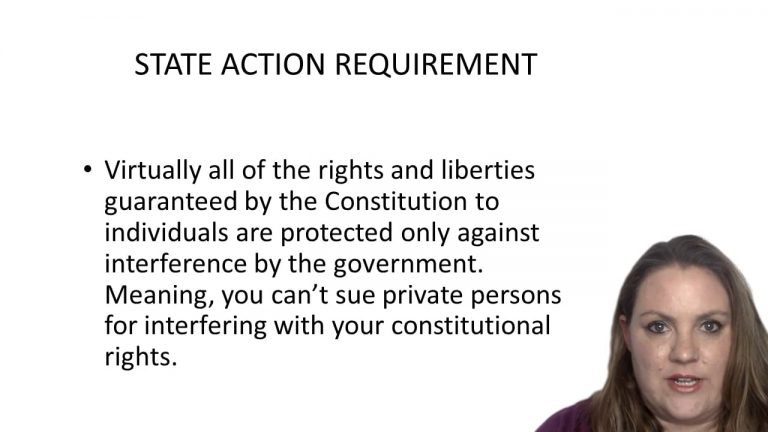SmartBrief
Confirm favorite deletion?
Constitutional Law Keyed to Rotunda
Marsh v. Alabama
Citation:
326 U.S. 501 (1946)Facts
The town known as Chickasaw is owned by the Gulf Shipbuilding Corporation and has all the characteristics of any other American town. Appellant, a Jehovah’s Witness, came onto the sidewalk, stood near the post office and undertook to distribute religious literature. In the stores, the corporation had posted a notice which read as “this is private property, and without written permission, no solicitation of any kind will be permitted.” Appellant was warned that she could not distribute the literature without a permit and told that no permit would be issued to her. When she was asked to leave the sidewalk and Chickasaw, she declined. The deputy sheriff arrested her and she was convicted in the state court with violating the statute that makes is crime to enter or remain on the premises of another after having been warned not to do so.
Only StudyBuddy Pro offers the complete Case Brief Anatomy*
Access the most important case brief elements for optimal case understanding.
*Case Brief Anatomy includes: Brief Prologue, Complete Case Brief, Brief Epilogue
- The Brief Prologue provides necessary case brief introductory information and includes:
Topic:
Identifies the topic of law and where this case fits within your course outline.Parties:
Identifies the cast of characters involved in the case.Procedural Posture & History:
Shares the case history with how lower courts have ruled on the matter.Case Key Terms, Acts, Doctrines, etc.:
A case specific Legal Term Dictionary.Case Doctrines, Acts, Statutes, Amendments and Treatises:
Identifies and Defines Legal Authority used in this case.
- The Case Brief is the complete case summarized and authored in the traditional Law School I.R.A.C. format. The Pro case brief includes:
Brief Facts:
A Synopsis of the Facts of the case.Rule of Law:
Identifies the Legal Principle the Court used in deciding the case.Facts:
What are the factual circumstances that gave rise to the civil or criminal case? What is the relationship of the Parties that are involved in the case.Issue(s):
Lists the Questions of Law that are raised by the Facts of the case.Holding:
Shares the Court's answer to the legal questions raised in the issue.Concurring / Dissenting Opinions:
Includes valuable concurring or dissenting opinions and their key points.Reasoning and Analysis:
Identifies the chain of argument(s) which led the judges to rule as they did.
- The Brief Prologue closes the case brief with important forward-looking discussion and includes:
Policy:
Identifies the Policy if any that has been established by the case.Court Direction:
Shares where the Court went from here for this case.
Topic Resources
Topic Outline
Topic Refresher Course

 8m 59s
8m 59s